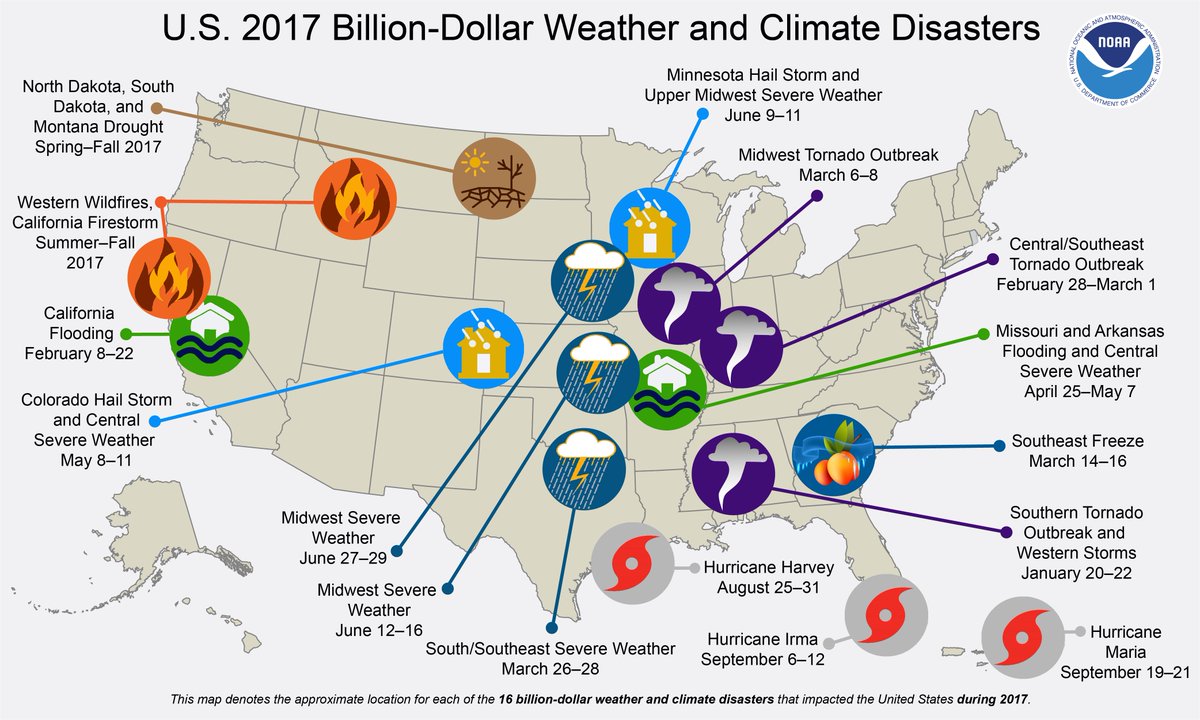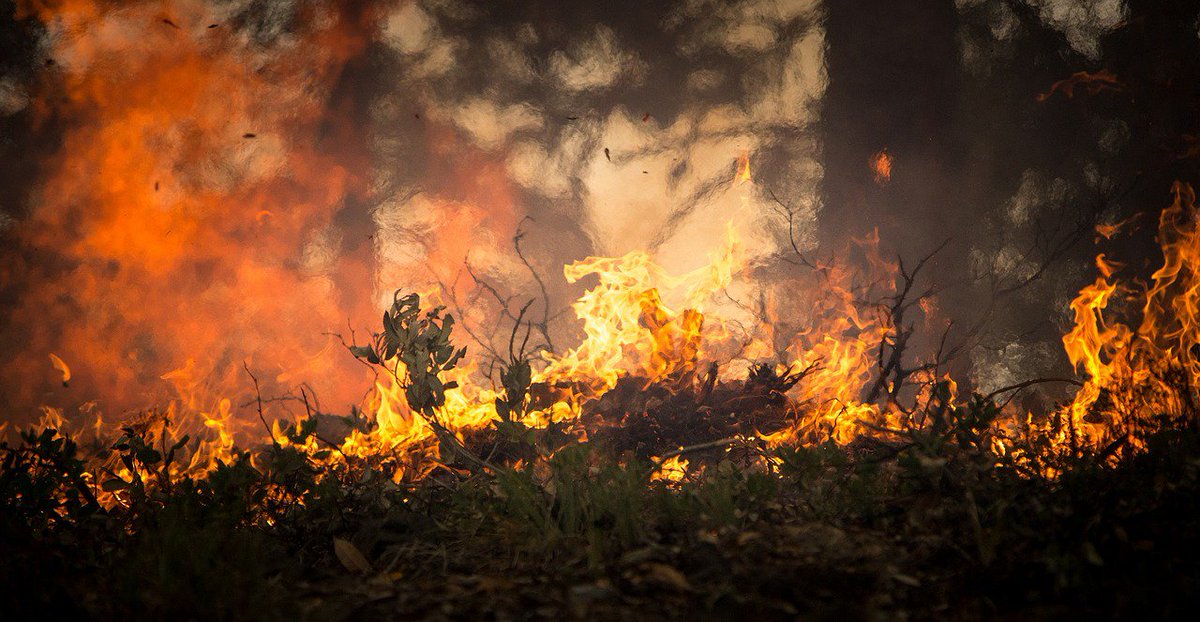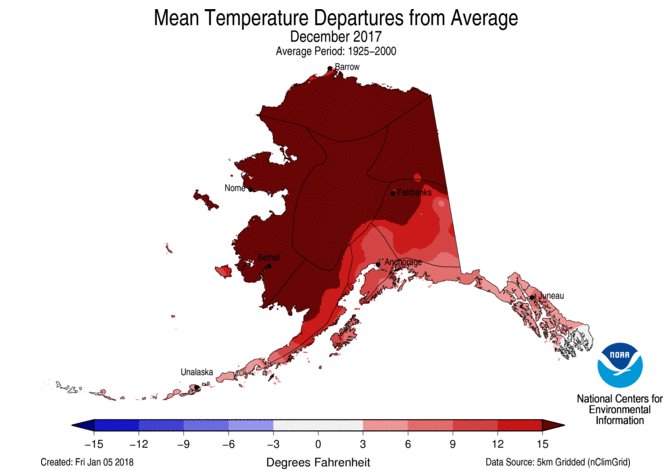Monday January 8th… Dear Diary. The main purpose of this ongoing post will be to track United States extreme or record temperatures related to climate change. I’ll refer to extreme temperatures as ETs (not extraterrestrials)😊. Here is today’s climate change related topic:
2017 Climate Summaries (Part 2)
The National Center for Environmental Information has completed their report for 2017 this morning indicating that last month and last year was very warm indeed, which we can blame on carbon pollution. Here are some temperature rankings and notes from Climate Central’s Sean Sublette:

Wow! My home state of Georgia saw its warmest year on record. All this warmth is bad news and can be correlated with the high cost of weather related disasters. One example is that the peach crop in Georgia was directly affected by the warmth: http://www.walb.com/story/35592005/most-of-2017-georgia-peach-crop-lost-because-of-weather . Here is more from Sean:
 Brian L KahnVerified account @blkahn
Brian L KahnVerified account @blkahn

This is actually an incredible statistic: devastating Western wildfires in 2017 collectively caused *three times* more damage to human homes and infrastructure than any previous year on record.


 Kees van der Leun @Sustainable2050
Kees van der Leun @Sustainable2050
Previous record smashed by 1.2°C: December 1985 (average -8.2°C)
Via @EKMeteo



…………………………………………………………………………………………………………………………………………..
Sunday January 7th… Dear Diary. The main purpose of this ongoing post will be to track United States extreme or record temperatures related to climate change. I’ll refer to extreme temperatures as ETs (not extraterrestrials)😊. Here is today’s climate change related topic:
Changing Ocean Chemistry
One of the many facets of climate change I have not touched on much is the steady increase of acid in the Earth’s oceans due to the uptake of carbon leading to ever more deadly changes to habitats. Should food chains be disrupted enough those dependent in large part on the sea for their diets will have to make adjustments. Starvation for large populations is a real possibility if mankind can’t conquer the carbon pollution problem.
By definition from Wikipedia : “Ocean acidification is the ongoing decrease in the pH of the Earth‘s oceans, caused by the uptake of carbon dioxide (CO2) from the atmosphere. Seawater is slightly basic (meaning pH > 7), and ocean acidification involves a shift towards pH-neutral conditions rather than a transition to acidic conditions (pH < 7). Ocean alkalinity is not changed by the process, or may increase over long time periods due to carbonate dissolution.[4] An estimated 30–40% of the carbon dioxide from human activity released into the atmosphere dissolves into oceans, rivers and lakes. To achieve chemical equilibrium, some of it reacts with the water to form carbonic acid.”
Most of us have read and heard about the horror stories in association with coral bleaching from ocean acidification. Some states, such as Washington, where seafood is a big industry, are implementing studies and plans for protection:
http://www.pugetsoundinstitute.org/2017/12/local-actions-highlight-ocean-acidification-report/
In the future we will see how much the changing chemistry of the oceans affects the heath and well being of individuals highly dependent on seafood. I hope to report some good news on this front in the next few years.

Let’s not forget that the warming of the oceans themselves causes corral beaching, and a new study suggests that this process is happening faster:
https://www.theverge.com/2018/1/4/16849336/global-warming-coral-reefs-bleaching-rate-climate-change
As of this writing our historic cold wave is waning. The typical “January Thaw” will occur over a large section of the nation this week:
 Ryan Maue | weather.usVerified account @RyanMaue
Ryan Maue | weather.usVerified account @RyanMaue

Tomorrow morning a warming trend will be well underway in the Midwest with some dangerously cold, but more typical temperatures persisting in the Northeast:

Obviously it’s summer in the southern hemisphere where Australia is seeing another blistering summer, even by their standards:
http://www.newsweek.com/its-so-hot-australia-roads-are-melting-under-blast-furnace-heat-772934
Here is an eye popping ET record report from down under:
 Bureau of Meteorology, New South WalesVerified account @BOM_NSW
Bureau of Meteorology, New South WalesVerified account @BOM_NSW
Here is a report of record cold from our nation’s Capital:
The Climate Guy





